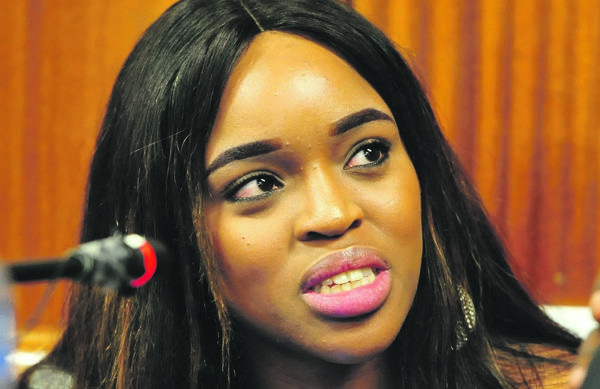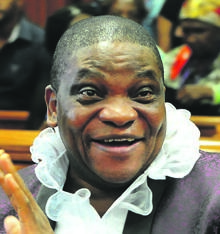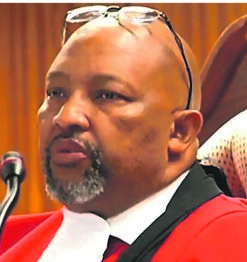
The rape and human trafficking trial of Nigerian pastor Timothy Omotoso in the High Court in Port Elizabeth is probably the best case study we have to test some of the theories about what justice should entail with regard to our constitutional framework and the bill of rights.
It is not just about the accused. This case puts in one basket a range of critical issues that should be considered. It raises fundamental questions about public interest, the human rights of the accused, the victims and the witnesses in the context of a criminal trial, the constitutional obligations of a court towards the accused, victims and witnesses and the effect of the views of society on matters of this nature.
Society reacted with outrage at what it viewed as an intrusive cross-examination of a victim by exposing her to secondary victimisation. In that context, pertinent questions have been asked about whether this should be allowed and whether alleged victims should be subjected to such intrusive cross-examination. The crux of the argument is that this type of intrusive cross-examination constitutes secondary victimisation.
I do not understand the argument that a victim cannot be cross-examined and asked pertinent questions. I also do not understand the argument that an accused should be presumed guilty without any cogent evidence being presented before court.
The issue is that the manner in which a victim or witness is treated does not always accord with the human rights of that person. This argument strikes at the heart of the right to human dignity of the victim and/or witness in a criminal trial.
An argument in the opposite direction is being advanced by another unhappy quarter. The crux of the argument is that there must be unlimited freedom to ask any question whether it is intrusive or not in the pursuit of justice for the accused. Already an argument has been made that preventing questions which the court and the public might deem intrusive has the effect of violating the rights of the accused to a fair trial.
The media, which has reported extensively on the matter, is accused of conducting its own trial and convicting the accused even before the trial is concluded. This strikes at the heart of the freedom of the media and expression. The media cannot engage in self-censorship and abdicate its public responsibility because somebody feels offended. That is not its purpose.
A trial of this nature will unavoidably have ignited a fierce debate on various issues both in terms of its form and content. It is important that this trial is televised and extensively reported on. This gives society a better insight into the matter.
It is expected the public will have opinions about some aspects of the trial. When laws are made, the public is consulted. It is exactly the extensive reporting of this matter that will contribute to better public input into laws passed by Parliament.
The prosecution of crime is done on behalf of society. It is society that demands those who transgress the law should be brought before court, that their guilt or otherwise be determined and the necessary consequences follow the determination.
It is therefore illogical for anyone to think that society has no direct interest in the prosecution of crime and will not express any views about what transpires in the courts of law.
The media will always play a critical role of being the eyes and ears of society. It will always convey opinion and will facilitate discourse on matters of public interest. This can be done only through reporting and conveying the information presented, including in proceedings of this nature.
This trial, as with many others – including those that do not receive this level of publicity – will always remain matters of public interest.
Society cannot be expected to be desensitised to serious allegations of the abuse of children and women and the violation of rights. Society must, and correctly so, expect judicial officers to be sensitive to instances in which human rights are trampled upon. Society cannot, however, determine how a judicial officer should intervene in proceedings of this nature. But it cannot be offensive for the public to express a view about how it believes judicial officers should intervene.
It cannot be that the expression of empathy by a judicial officer constitutes bias. An expression of empathy and a finding of guilt are wholly different issues. It does not follow that the expression of empathy for a victim or an accused will result in a conviction or acquittal. Judicial officers always express empathy for both accused and victims alike. This does not in any way suggest that they are taking sides. This is why – even in the face of serious public protests against the granting of bail or demands for harsher sentences for accused people – judicial officers continue to exercise their own discretion independent of such public opinion.
Rights must of necessity go with responsibility. No person must exercise his or her rights by violating the rights of others. Society has every right to demand that the execution of rights be done in a manner that respects the rights of others. It will be a sad day if the expression of public outrage and media reporting and opinion on such matters of grave public interest are used to suggest the erosion of a fair trial right of an accused. How this constitutes an erosion of that right is beyond comprehension.
Our system places the responsibility for the determination of the guilt or otherwise of an accused in the hands of the presiding judge and not the public or the media.
The process on its own is transparent and based on specific principles and processes. The public and the media play no role whatsoever in this determination.
Our Constitution requires that the dignity of everyone must be respected. There is no limitation to this right. The Constitution does not state that an accused person in criminal proceedings acquires better rights to human dignity than the victim or a witnesses. The duty of the state to prove its case beyond any reasonable doubt in no way limits the human rights of a victim and/or witness in the proceedings. It cannot therefore be that a victim and/or a witness in a criminal trial should be subjected to any form of intrusive questioning that is humiliating, calculated to demean and/or to further violate an already injured dignity and/or other rights.
If this were to be the case, there would be no point in holding these proceedings. This is exactly why certain sectors of society correctly object to what may clearly constitute secondary victimisation.
There must of necessity be a big difference between unearthing the truth and ensuring justice on the one hand and the gross violation of human rights on the other.
The line cannot and should not be blurred. The truth can always be unearthed without a gross violation of rights of either an accused person or a witness. The true purpose of cross-examination is to unearth the truth. Unearthing the truth entails probing matters that are relevant and tend to confirm or refute the occurrence of an event which is the subject of the proceedings.
In the case of criminal proceedings, it is imperative to unearth the facts and/or occurrences that prove or disprove the elements of the crime for which an accused is charged. Anything calculated to embarrass or humiliate a witness cannot by the stretch of any imagination serve the purpose of cross-examination.
When a person is arrested and charged with an offence, this presupposes that there is a prima facie case that a crime was committed. The purpose of a criminal trial is to determine his or her guilt or otherwise. The purpose is not to determine if the victim is guilty of anything.
Mannya is an advocate and a former public servant




 Publications
Publications
 Partners
Partners











